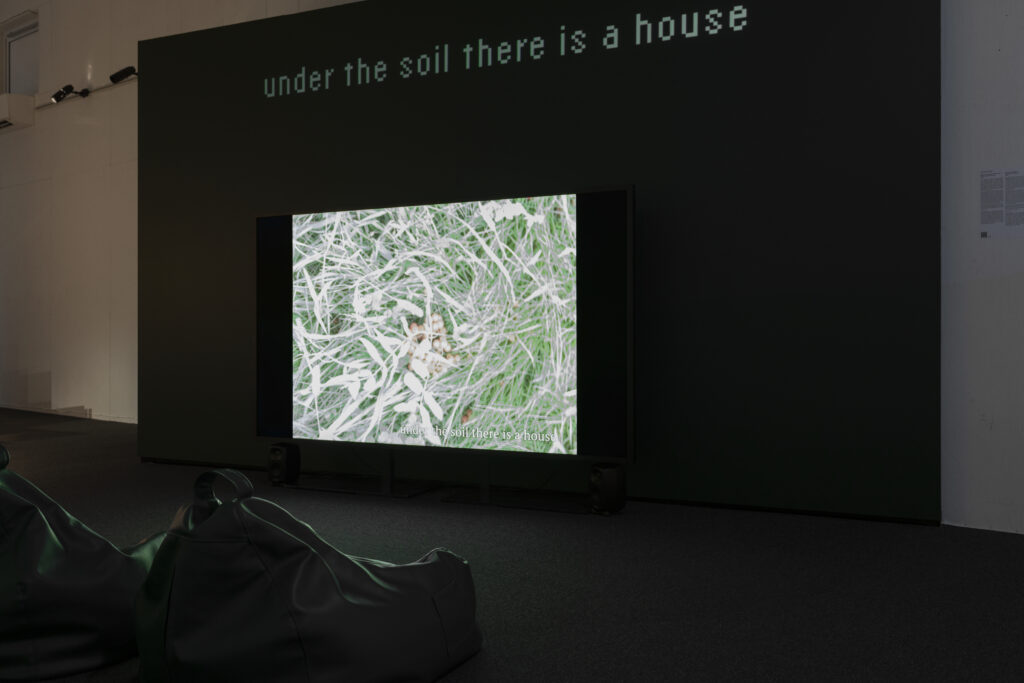Yaniya Mikhalina
Munajats of Mähirä
2024

Yaniya Mikhalina’s work is based on her interest in the long-term legacies of Russian imperialism and its transgenerational influences on the Tatar community and culture. While the artist was searching for ways to research and connect to ancient Tatar knowledge, she found her great grandmother’s songs and clothes. Both record unwritten histories of the Tatar community as well as resistance of women across generations. The artist’s great grandmother Mähirä lived through two world wars and the communist regime, leading a rural life that enabled her to stay close to religion and indigenous practices.
The songs called ‘munajats’ that Mähirä used to sing in the tatar language record histories of colonial violence inflicted upon the Tatar community. In the circumstances in which both Islam and the Tatar language have been outlawed in the Volga-Ural region in the course of centuries of colonial politics, the transmission of ‘munajats’ itself carries resistance. The artist calls their translation both impossible and necessary, since they also embody ways of healing that Mikhalina makes visible in her work. Mähirä’s clothes that the artist commissioned a Tatar artisan to recreate in her own size carry local textile traditions and include hand-crafted ornaments.
In the film healing and protecting rituals are performed by elder women from the artist’s family. In Estonia the history of its Tatar community and cultural histories of other local Islamic communities have remained largely unknown to the larger public.